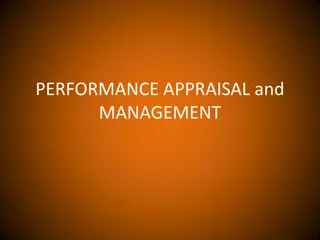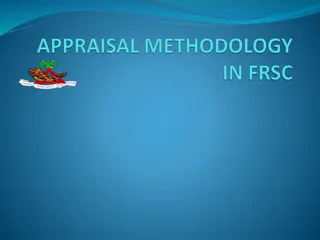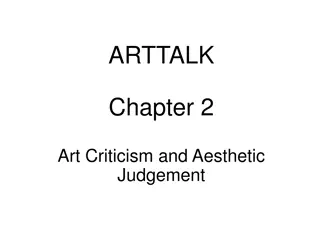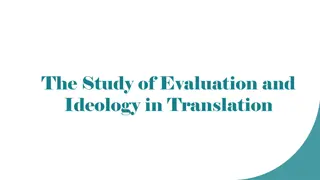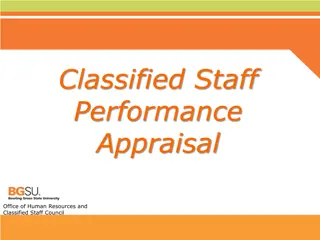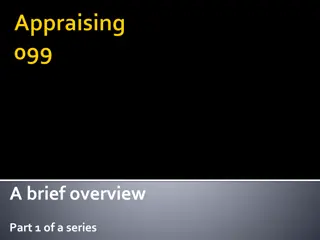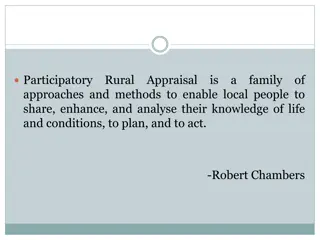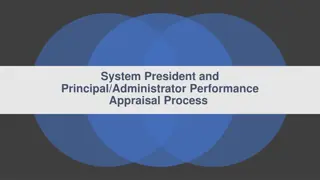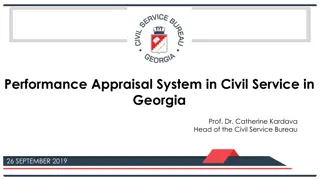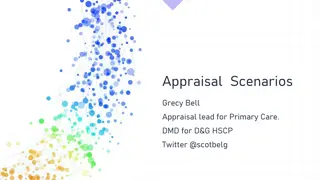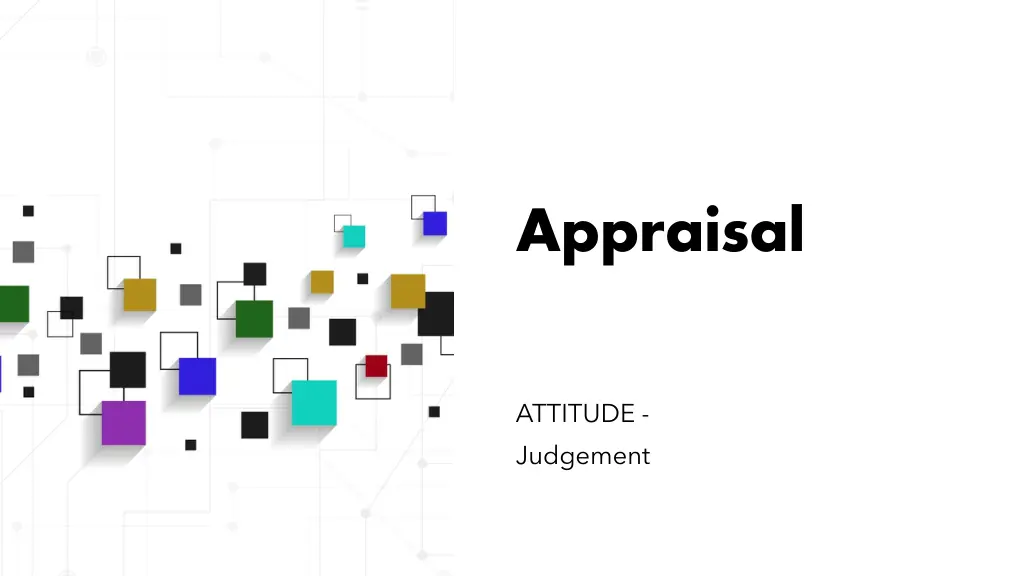
Understanding Appraisal, Judgement, and Cultural Practices
Explore the concepts of appraisal, judgement, and cultural practices, delving into how language is used to express personal views, evaluate others, and consider different viewpoints. Discover the cultural influences on judgement and learn about assessing esteem, sanction, positive, and negative attributes in individuals.
Download Presentation

Please find below an Image/Link to download the presentation.
The content on the website is provided AS IS for your information and personal use only. It may not be sold, licensed, or shared on other websites without obtaining consent from the author. If you encounter any issues during the download, it is possible that the publisher has removed the file from their server.
You are allowed to download the files provided on this website for personal or commercial use, subject to the condition that they are used lawfully. All files are the property of their respective owners.
The content on the website is provided AS IS for your information and personal use only. It may not be sold, licensed, or shared on other websites without obtaining consent from the author.
E N D
Presentation Transcript
Appraisal ATTITUDE - Judgement
Appraisal theory + allows us to understand more complex ways in which we express our personal views and react to the views of others (White 2013) + has three resources in language: attitude, graduation and engagement + gives us the language to consider and answer the following:
+ What cultural practices appear in and have given rise to the text? + Do these work together or in opposition in setting up particular readings? + Whose and what points of view are being represented? + What has been omitted? + Whose interests are being served by the text? + Are you inclined to accept / resist the points of view in this text? + Who might be an ideal reader of this text? + Who might challenge the viewpoints being expressed? (McGuire 2008)
Judgement + is culturally bound + language of Judgement is used to make positive or negative assessments + can be used to assess the personality, actions or words of a character, and + may be expressed directly or indirectly in words or phrases (Peel 2014) + can generally be divided into judgement of esteem and judgement of sanction
Judgement esteem esteem sanction sanction praise and condemnation + how a person should behave (eg honesty or morality) admiration and criticism + how ab/normal a person is + how in/capable a person is + how un/reliable a person is (HK, Polyu n.d.)
Positive Positive lucky, cool, interesting, amazing Negative Negative odd, weird, uninteresting, erratic, clumsy, awkward weak, silly, unsuccessful, unintelligent, dim-witted cowardly, unreliable, timid Is the person special? Is the person special? Is the person capable? Is the person capable? skilful, strong, fit, clever, smart, fast-thinking brave, tireless, reliable, loyal Is the person Is the person dependable? dependable? Is the person honest? Is the person honest? truthful, credible, honest, direct, good good, kind, fair, caring, respectful, respectable dishonest, lying, sneaky, untrustworthy bad, evil, arrogant, mean, selfish Is the person good? Is the person good? (Peel 2014)
References Hong Kong Polytechnic University n.d., Attitude , viewed 27 July 2021, www.engl.polyu.edu.hk/academic_writing/attitude.html. McGuire, R 2008, Grammar at the chalkface: an introduction to the grammar of Appraisal and its application in a Year 9 classroom mETAphor, Issue 1, 2008 pp 42-57 Peel, R 2014, Affect and Judgement (evaluative language) , viewed 27 July 2021, Affect and Judgement (evaluative language) by Rosie Peel on Prezi Next. White, PRR 2013, Systemic Functional Grammar: Appraisal , An Introduction to Appraisal, ASLA.




